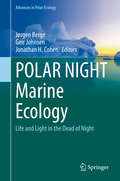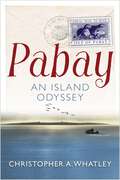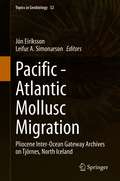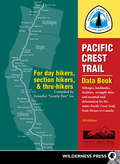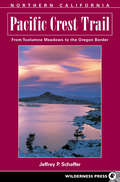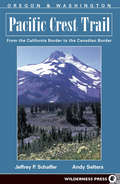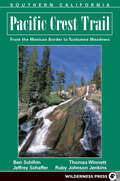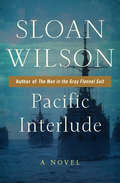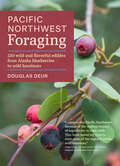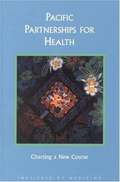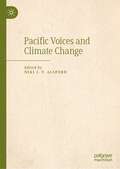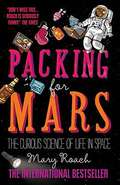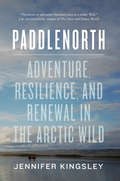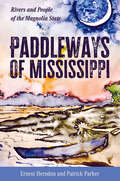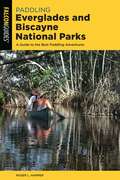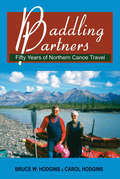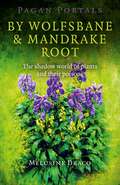- Table View
- List View
P.S. I Still Hate It Here: More Kids' Letters from Camp
by Diane FalangaAnother collection of hilarious real-life letters from kids at summer camp sure to amuse anyone who’s ever been a homesick child or a parent of one.From the editor of the bestselling P.S. I Hate It Here comes an all-new, even more outrageous and laugh-out-loud funny collection of real letters written by children ages eight to sixteen to their parents about their adventures at summer camp. Written with the same wit and honesty as those in the first book, these new letters take the reader on a familiar adventure that conjures up the experience of being away from home, and the hilarious and lasting memories that accompany that special place called sleepaway camp.Praise for P.S. I Still Hate It Here“Will give you and your friends a good laugh while you’re at the beach and the kids are away.” —Geek Mom
PADI Open Water Diver manual 2006 Edition
by Editors at the PADIThe PADI Open Water Diver course consists of three segments: Confined water dives, knowledge development, and open water dives. Each plays an important role in learning to dive and in meeting the performance objectives you need to qualify as a diver. Knowledge development establishes the principles and basic information all divers need to have fun diving safely. It's divided into five segments that you'll complete primarily on your own time at your convenience using this manual and the PADI Open Water Diver Video. (In some instances you may view or review the video in a classroom setting.) For each segment, your instructor reviews and elaborates on the material, applying what you're learning to your specific needs, interests and the local dive environment. A short quiz confirms that you've picked up the information you need from that section.
POLAR NIGHT Marine Ecology: Life and Light in the Dead of Night (Advances in Polar Ecology #4)
by Geir Johnsen Jørgen Berge Jonathan H. CohenUntil recently, the prevailing view of marine life at high latitudes has been that organisms enter a general resting state during the dark Polar Night and that the system only awakens with the return of the sun. Recent research, however, with coordinated, multidisciplinary field campaigns based on the high Arctic Archipelago of Svalbard, have provided a radical new perspective. Instead of a system in dormancy, a new perspective of a system in full operation and with high levels of activity across all major phyla is emerging. Examples of such activities and processes include: Active marine organisms at sea surface, water column and the sea-floor. At surface we find active foraging in seabirds and fish, in the water column we find a high biodiversity and activity of zooplankton and larvae such as active light induced synchronized diurnal vertical migration, and at seafloor there is a high biodiversity in benthic animals and macroalgae. The Polar Night is a period for reproduction in many benthic and pelagic taxa, mass occurrence of ghost shrimps (Caprellides), high abundance of Ctenophores, physiological evidence of micro- and macroalgal cells that are ready to utilize the first rays of light when they appear, deep water fishes found at water surface in the Polar night, and continuous growth of bivalves throughout the winter. These findings not only begin to shape a new paradigm for marine winter ecology in the high Arctic, but also provide conclusive evidence for a top-down controlled system in which primary production levels are close to zero. In an era of environmental change that is accelerated at high latitudes, we believe that this new insight is likely to strongly impact how the scientific community views the high latitude marine ecosystem. Despite the overwhelming darkness, the main environmental variable affecting marine organisms in the Polar Night is in fact light. The light regime during the Polar Night is unique with respect to light intensity, spectral composition of light and photoperiod.
Pabay: An Island Odyssey
by Christopher Whatley&“An island history almost without comparison . . . one of the finest Highland books of the 21st century&” from the renowned Scottish historian (West Highland Free Press). The tiny diamond-shaped island of Pabay lies in Skye&’s Inner Sound, just two and a half miles from the bustling village of Broadford. One of five Hebridean islands of that name, it derives from the Norse papa-ey, meaning &“island of the priest.&” Many visitors since the first holy men built their chapel there have felt that Pabay is a deeply spiritual place, and one of wonder. These include the great 19th-century geologists Hugh Miller and Archibald Geikie, for whom the island&’s rocks and fossil-laden shales revealed much about the nature of Creation itself. Len and Margaret Whatley moved to Pabay from the Midlands and lived there from 1950 until 1970. Leaving a landlocked life in Birmingham for the emptiness of an uninhabited island was a brave and challenging move for which nothing could have prepared them. Christopher Whatley, their nephew, was a regular visitor to Pabay whilst they lived there. In this book, based on archival research, oral interviews, memory and personal experience, he explores the history of this tiny island jewel, and the people for whom it has been home, to create a vivid picture of the trials, tribulations and joys of island life.&“If the island itself is a diamond, this work is a sparkling gem.&” —The Press and Journal&“Beautifully written, and presents a richly detailed and fascinating historical narrative . . . It&’s as much a testimony to how people have shaped the island and how the island has shaped them.&” —Dundee Courier
Pablo in the Snow
by Teri SloatWhat is soft, fluffy, and white? Pablo’s wool, of course. But this little lamb soon discovers that there’s something else as well: SNOW! From making trails to sledding with friends, having snowball fights and crafting snowmen, there’s tons of fun to be had in the snow. But winter days grow dark very fast, and Pablo finds himself lost on his way home. Not to worry—Mama and Papa help Pablo get back to the cozy barn so he can talk about his adventures.A Christy Ottaviano Book
Pacha's Pajamas: A Story Written by Nature (Morgan James Kids Ser.)
by Aaron Ableman Daveed BenjaminA tale of musical plants, dancing animals, and one little girl’s dream of saving the planet—includes a special augmented-reality feature! Pacha’s imagination is bigger than the Andes Mountains, homeland of her ancestors. In her dreams, the plants and animals on her PJs come alive—and she journeys with them to learn more about herself. Then after a stress-induced asthma attack, her magical pajamas carry her into an epic dream where she encounters a handful of critters lamenting the state of their home. Disguised as a little gorilla, Pacha joins in, and together they decide to organize a Nature Festival that brings all species together. Full of musical plants and dancing animals, the PACHA JAMMA festival is a worldwide call to action to save the planet from destruction. But Mr. Tick seems to be scheming to disrupt the festival. With the help of her plant and animal friends, Pacha races against time to decipher a cryptic puzzle that outlines Mr. Tick’s dastardly plans. But just as she is on the verge of victory, a massive hurricane threatens them all . . . This exciting tale with a message of empowerment and environmental responsibility, including lots of fun science facts and a bonus augmented-reality animation feature, is “a critical tool in giving children a sense of themselves, the power of their dreams and the natural world around them” (Mos Def/Yasiin Bey, actor and recording artist).
Pacific - Atlantic Mollusc Migration: Pliocene Inter-Ocean Gateway Archives on Tjörnes, North Iceland (Topics in Geobiology #52)
by Leifur A. Símonarson Jón EiríkssonThis volume sheds new light on the marine fauna and geological setting of the Tjörnes Sequence, North Iceland, which is a classic site for the Pliocene and Pleistocene stratigraphy of the North Atlantic region. Readers will discover descriptions of new data collected by the editors over a period of over three decades on marine faunal assemblages and sedimentology available for palaeoenvironmental reconstructions, as well as the tectonic and stratigraphical relationships on Tjörnes Peninsula. The book includes a comprehensive account of all the collections of marine fossil invertebrate macrofossils and foraminifera known to the editors from the Tjörnes Sequence. It is expected to elucidate sedimentological and faunal changes from relatively stable Pliocene conditions to highly variable and periodically harsh climatic conditions of recurring Quaternary glaciations. The distribution, recent or fossil, of various species is recorded and pertinent ecological and biological features are also discussed. The Tjörnes Sequence records the Neogene migration of Pacific species into the North Atlantic. Researchers in geology, climate science, environmental science and earth science will find this book particularly valuable.
Pacific Crest Trail Data Book
by Benedict GoThe essential, cut-to-the-chase handbook to the Pacific Crest Trail, based on the comprehensive Wilderness Press guidebooks to the PCT, has been completely updated. Packed with trail-tested features, it's useful both on and off the trail, covering pre-trip planning for resupply stops, how to set daily on-the-trail mileage goals by knowing trail gradient and the locations of campsites, water sources, and facilities, and how to easily calculate distances between any two points on the trail, and how to planning both north-bound and south-bound hiking trips.
Pacific Crest Trail: Northern California
by Jeffrey P. SchafferFrom the time the PCT leaves the Mexican border, until it reaches Canada, it has traveled 2,650 miles through 24 national forests, 37 wilderness areas, and 7 national parks. In Pacific Crest Trail: Northern California, you'll meet up with the PCT in Yosemite National Park's Tuolumne Meadows, then hike, climb, descend, and switchback your way to the Oregon border. You'll discover rivers, peaks, forests, meadows, fascinating geological formations, and other natural wonders. You'll pass through Emigrant, Desolation, and Marble Mountain wildernesses; Trinity Alps and Lassen National Park; and, you'll see Lake Tahoe, Burney Falls, Mt. Shasta, and Castle Crags. This book helps you locate the PCT and side-trips, find water sources, and access resupply routes. Jeffrey P. Schaffer also describes the rich geological and natural history of these mountains. Information on camping, permits, and the best seasons to go is provided along with updated maps.
Pacific Crest Trail: Oregon and Washington
by Andy Selters Jeffrey P. SchafferThe 2650-mile Pacific Crest Trail, adopted by Congress as a National Scenic Trail, passes through some of the most breathtaking scenery in the United States. Hiking along this ridge-crest route, you'll see Mt. Jacinto, Mt. Whitney, Lassen Peak, Mt. Shasta, Mt. Hood, Mt. Adams, Mt. Rainier and Glacier Peak. You'll traverse 24 national forests, 34 wilderness areas, 7 national parks, plus numerous other parks and recreational areas. Trail elevations range from near sea level at the Columbia River on the Oregon-Washington border, to 13,180 feet at Forester Pass in the High Sierra. Written by accomplished hikers who have each logged over 5,000 trail miles, this book is the only accurate, comprehensive guide to the Pacific Crest Trail in Oregon and Washington. Featuring a complete map of the route, in the form of 149 topographic strip maps, Pacific Crest Trail: Oregon & Washington will give you an extensive description of the trail, tips on planning your hike, history of the trail, and information on the region's natural history, geology and ecology.
Pacific Crest Trail: Southern California
by Thomas Winnett Jeffrey P. Schaffer Ben Schirfin Ruby Johnson JenkinsFirst published in 1973, The Pacific Crest Trail, Vol. 1, California quickly established itself as the "PCT Bible"- the book trekkers could not do without. Now thoroughly updated and redesigned into two portable volumes, Pacific Crest Trail: Southern California starts at the Mexican border and guides you to Yosemite's beautiful back country. Its companion volume meets the trail at Tuolumne Meadows and drops you at Oregon's door. Thru-hikers to Canada will find the rest of their journey in Pacific Crest Trail: Oregon & Washington. Our PCT gurus help you locate the trail, water sources, and resupply access routes with detailed descriptions, customized maps, and tips on alternate routes. Whether you're planning day hikes, weekend or week long backbacks, or an ambitious thru-hike, everything you need to know about-from bears to trees-is here.
Pacific Interlude: A Novel
by Sloan WilsonDuring the last days of World War II, a young officer braves enemy fire and a maverick crew on the open waters and in the steamy ports of the South Pacific Twenty-five-year-old Coast Guard lieutenant Sylvester Grant, a veteran of the Greenland Patrol, has just been given command of a small gas tanker, running shuttle and convoy duties for the US Army. Sally, his wife of three years, is eager for him to get back to Massachusetts and live a conventional suburban life selling insurance--but Syl longs for adventure and is bound to find it as the captain of a beat-up, unseaworthy vessel carrying extremely flammable cargo across dangerous stretches of the Pacific Ocean. As the Allies prepare to retake the Philippines, the only thing the sailors aboard the Y-18 want is for the war to be over. First, however, they must survive their mission to bring two hundred thousand gallons of high-octane aviation fuel to shore. From below-deck personality clashes to the terrifying possibility of an enemy attack, from combating illness and boredom to the constant stress of preventing an explosion that could blow their ship sky high, the crew of the Y-18 must learn to work together and trust their captain--otherwise, they might never make it home. Based on Sloan Wilson's own experiences, Pacific Interlude is a thrilling and realistic story of World War II and a moving portrait of a man looking toward the future while trying to survive a precarious present.
Pacific Northwest Foraging: 120 Wild and Flavorful Edibles from Alaska Blueberries to Wild Hazelnuts (Regional Foraging Series)
by Douglas Deur“Doug Deur invites us to discover the taste and history of the Northwest.” —Spencer B. Beebe, author of Cache and founder of Ecotrust The Pacific Northwest offers a veritable feast for foragers, and with Douglas Deur as your trusted guide you will learn how to safely find and identify an abundance of delicious wild plants. The plant profiles in Pacific Northwest Foraging include clear, color photographs, identification tips, guidance on how to ethically harvest, and suggestions for eating and preserving. A handy seasonal planner details which plants are available during every season. Thorough, comprehensive, and safe, this is a must-have for foragers in Oregon, Washington, and Alaska.
Pacific Northwest Medicinal Plants: Identify, Harvest, and Use 120 Wild Herbs for Health and Wellness
by Scott Kloos“An incredibly thorough guide for identifying, harvesting, and utilizing medicinal plants.” —Dr. Deborah Frances RN, ND Naturopathic physician, herbalist, author, and lecturer In Pacific Northwest Medicinal Plants, Scott Kloos is your trusted guide to finding, identifying, harvesting, and using 120 of the region’s most powerful wild plants. You’ll learn how to safely and ethically forage, and how to use wild plants in herbal medicines including teas, tinctures, and salves. Plant profiles include clear, color photographs, identification tips, medicinal uses and herbal preparations, and harvesting suggestions. Lists of what to forage for each season makes the guide useful year-round. Thorough, comprehensive, and safe, this is a must-have for foragers, naturalists, and herbalists in Oregon, Washington, Alaska, and northern California.
Pacific Partnerships for Health: Charting a Course for the 21st Century
by Robert S. Lawrence Jill C. FeasleyThe U.S.-Associated Pacific Basin consists of six island jurisdictions: American Samoa, the Commonwealth of the Northern Mariana Islands, Guam, the Federated States of Micronesia, Republic of the Marshall Islands, and the Republic of Palau. This book examines one aspect of the ties and U.S. involvement with this part of the world--its role in the region's health care delivery system. Although the health status of the islanders and the challenges faced by the health care systems naturally vary within and among the jurisdictions, in general, almost all health indicators for the islanders are worse than those of mainland Americans. The health systems in the area must deal with conditions normally seen in developing countries (e.g., malnutrition, tuberculosis, dengue fever, and cholera) and in developed countries alike (e.g., diabetes, heart disease, and cancer). In examining the strengths and weaknesses of the area's systems, the volume provides a regional health overview and assessments of health care in individual jurisdictions, evaluates the Pacific Basin Medical Officers Training Program, and lays out a strategic plan for future health services in the U.S.-Associated Pacific Basin.
Pacific Voices and Climate Change
by Niki J. P. AlsfordThis book provides a comprehensive overview of issues related to climate change in the Pacific and will be an invaluable reference for those working in this important field. Climate change represents humanity’s greatest threat. The vastness of the Pacific means that no two experiences are the same. This edited volume identifies research that highlights the local impact of climate change on the islands and coastlines of the Pacific. The authors use current research to document climate change via contextually informed studies that engages with local cultures, histories, knowledges, and communities. The transdisciplinary nature and the combination of both academic and non-academic writing makes this book an accessible and important contribution to the field.
Packing for Mars: The Curious Science of Life in Space
by Mary RoachWhat happens when you vomit during a space walk? The bestselling author of Stiff explores the irresistibly strange universe of space travel and life without gravitySpace is devoid of the stuff humans need to live: air, gravity, hot showers, fresh veg, privacy, beer. How much can a person give up? What happens when you can't walk for a year? Is sex any fun in zero gravity? What's it like being cooped up in a metal box with a few people for months at a time? As Mary Roach discovers, it's possible to explore space without ever leaving Earth. From the space shuttle training toilet to a 17,000 mile-per-hour crash test of NASA's space capsule (cadaver stepping in), she takes us on a surreally entertaining trip into the science of living in space.
Paddington Sets Sail (I Can Read Level 1 Ser.)
by Michael Bond R. W. AlleyPaddington Bear has charmed readers of all ages for almost 60 years! Now part of the I Can Read line, Michael Bond’s classic character will delight beginning readers with his curious nature and nose for adventure. Paddington is thrilled to go to the beach with the Browns. He’s never splashed in the ocean or built a sand castle. Outfitted with a new set of beach toys, Paddington seems ready for whatever comes his way. But the biggest surprise of all sweeps Paddington off on a new adventure. Paddington Sets Sail is a Level One I Can Read book, which means it’s perfect for children learning to sound out words and sentences.
Paddlenorth
by Jennifer KingsleyIn an adventure of a lifetime, Jennifer Kingsley and her five companions canoe through one of the planet's most rugged settings. They battle raging winds, impenetrable sea ice, treacherous rapids, and agonizing sores and blisters while contending with rising tensions among the group. But they also experience the lasting joy of grizzly sightings, icy swims, and the caribou's summer migration. Woven through this spellbinding narrative are often-harrowing accounts of the journeys of earlier explorers, some of whom never made it back home. Paddlenorth paints an indelible portrait of the spectacular Arctic landscape, rendered with a naturalist's eye and an artist's sensibility, and offers an eloquent exploration of how wilderness changes us.
Paddleways of Mississippi: Rivers and People of the Magnolia State
by Ernest Herndon Patrick ParkerMississippi rivers and creeks have shaped every aspect of the state’s geology, ecology, economy, settlement, and politics. Mississippi's paddleways—its rivers, rills, creeks, and streams—are its arteries, its lifeblood, and the connective tissues that tie its stories and histories together and flood them with a sense of place and impel them along the current of time. The rivers provide structure for the telling of stories. In Paddleways of Mississippi: Rivers and People of the Magnolia State, readers will discover flowing details of virtually every waterway in the state—the features, wildlife, vegetation, geology, hydrology, and specific challenges to be expected—alongside many wonderful historical and social accounts specific to each system. Interviews and oral histories enliven these waterways with evocative scenery, engaging anecdotes, interesting historical tales, and personal accounts of the people and communities that arose along the waterways of Mississippi. Part natural history, part narrative nonfiction, Paddleways of Mississippi will appeal to outdoor enthusiasts, anglers, naturalists, campers, and historians, and is suitable for novices as well as experts. Told together, the pieces included are a social and ecological history that exposes and deepens the connection coursing between the people and the rivers.
Paddling Everglades and Biscayne National Parks: A Guide to the Best Paddling Adventures (Paddling Series)
by Roger L. HammerThe Ultimate Guide to Paddling the Everglades!Nothing compares to paddling Everglades and Biscayne National Parks. Encompassing nearly 1.7 million acres combined, these two national parks cover most of South Florida, from Everglades City south to Flamingo and across much of Florida Bay, and from the western shoreline of Biscayne Bay east to the offshore reefs, including part of the upper Florida Keys. Paddlers can discover beautiful ecosystems, fascinating habitats, and many diverse paddling routes.Paddling Everglades and Biscayne National Parks details at least 40 of the very best paddles throughout the National Parks, providing routes for every type of paddler. User-friendly format with informative maps throughout Informative at-a-glance paddle specs for every route Full-color photos throughoutGPS coordinates for every put-in/takeout
Paddling Partners: Fifty Years of Northern Canoe Travel
by Bruce W. Hodgins Carol HodginsCarol and Bruce Hodgins began leading canoe trips in 1957 for Camp Wanapitei on Lake Temagami in Northern Ontario, initially to the great rivers of that region and on into Quebec. Their first venture north of 60 found them on the South Nahanni, soon to be followed by the Coppermine River, and by the 1990s their annual tripping took them to the Soper River on Baffin Island. included with their richly descriptive accounts of wilderness travel with groups of people, are kayak adventures in Baja California, Mexico, and the Queen Charlottes, paddling in and near the Everglades and explorations on Heritage rivers in the Maritimes and along the coast of Newfoundland. Few have personally experienced the breadth of wilderness travel in Canada as have the Hodgins husband-and-wife team. Their fifty years as "paddling partners," a legendary achievement, is a story of shared joys, challenges, triumphs and mishaps, delightfully told and augmented by excerpts from daily logs, historical insights and the tidbits of experience gleaned over the years.
Paddling the Northern Forest Canoe Trail
by Dan TobyneThe 740-mile Northern Forest Canoe Trail is the largest inland water trail in the United States. The trail follows the traditional travel routes of Native Americans, including the Wabanaki and Iroquois, as well as their Paleo-Indian ancestors.Beginning in Old Forge, New York, and ending in Fort Kent, Maine, the NFCTencompasses 58 lakes and ponds, 22 rivers and streams, 62 portages totaling more than55-miles. With just over 347 miles, Maine is home to more of the trail than any other state and it is the wildest, least populated section. The Canoe Trail in Maine includes Umbagog, Moosehead, Rangeley, Flagstaff, Chesuncook, and Chamberlain Lakes, as well as the entire 92-mile Allagash Wilderness Waterway.This is a guide for doers, as well as dreamers. Practical information on paddling, gear, safety, plus maps will help you get started; and the beautiful photography will inspire you to prepare and help you stay motivated until it&’s time to head out.A paddle on the Canoe Trail is a trip through time as canoeists and kayakers discover the rich Native American and forestry history of the region, pockets of pristine wilderness, and an abundance of wildlife, including moose, bear, deer, beaver, bald eagles, and loons. It&’s the backwoods paddling experience of a lifetime.
Pagan Portals - By Wolfsbane & Mandrake Root: The Shadow World Of Plants And Their Poisons
by Melusine DracoA large number of poisonous plants have beneficial uses in both domestic medicine and magic. Needless to say, when utilising a toxic plant in magic, we are adding certain extra deadly or potent energies into the mix and it is inadvisable to start messing about with deadly poisons unless we&’ve made a thorough study of the subject - and not just by glancing at a paragraph in a book on herbal preparations!
Pagan Portals - God-Speaking
by Judith O'GradyPagan Portals - God-Speaking offers a new concept in Earth ecology incorporating mysticism and folk religion. The author is both a trance seer and a biologist, bringing a unique balance to an examination of nature philosophy. Storytelling examples from Irish folklore, NeoPagan theology, and scientific observations all contribute to a carefully reasoned theory about the future of the Earth and ourselves.


